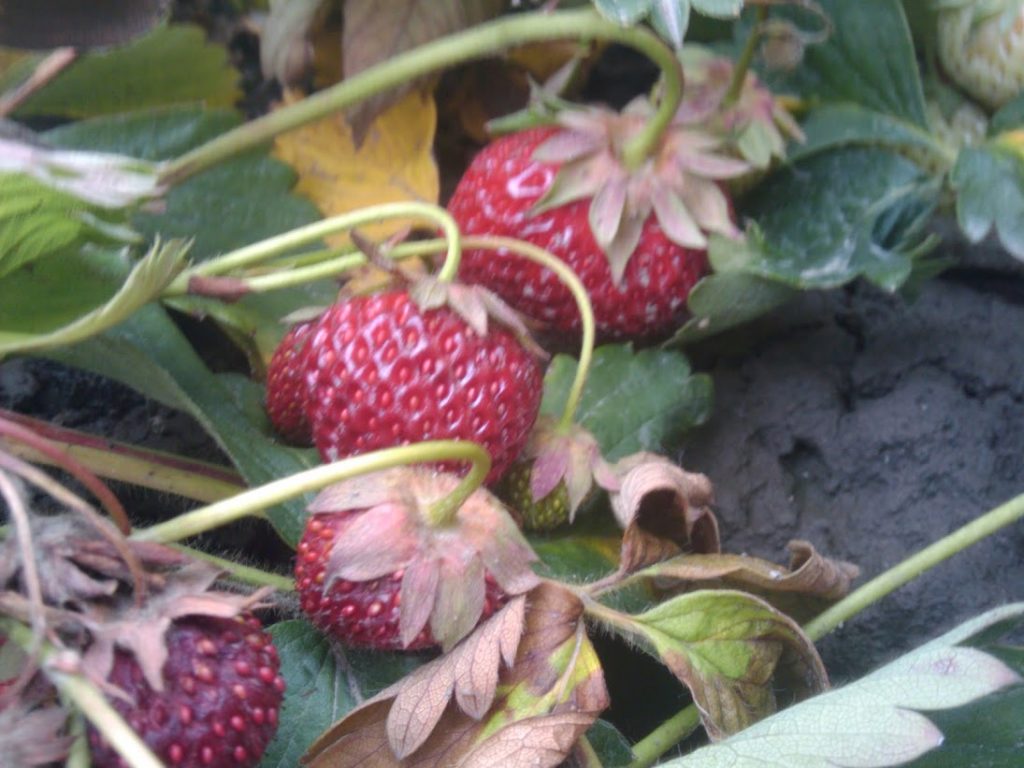Perishable, special, and local: The economics of unique and fleeting experiences
I pity you, dear reader. You likely have no idea what a real strawberry tastes like. Unless you spend the three weeks around the Summer Solstice in the shadow of this mountain, chances are you have never tasted a Hood strawberry.

The Hood is a variety grown exclusively in the Northern Willamette Valley of Oregon, on family-owned farms scattered around the edges of Portland’s urban growth boundary.
The Hood is as different from an industrial strawberry as an heirloom tomato or a piccolo San Marzano is from their rubber factory-farm cousins.
You may not know, for example, that strawberries have juice. They were meant to be a juicy fruit. The industrial strawberry has been bred to be a fibrous, indestructible and indefinitely shelf-stable.
You may also not know that a real strawberry is monochromatic: It is red, without a trace of white. When you cut a Hood strawberry open, and it is red through and through (and bleeding, in consequence of its wound).

The Hood is a fragile vessel for carrying strawberry juice. It’s both delicate and perishable, taking about three days from being picked to dissolving. It can’t be shipped. You either get it at a farmer’s market, go to the farm and “U-pick” the berries yourself, or find one of a relative handful of markets who’ll stock the tender things. It’s one of the things–along with the ending of the rainy season, that marks the beginning of summer in Oregon. And it’s just here for a few weeks: gone before the end of June. We’re not alone in our obsession: actual scientists say the same thing about the Hood.
The point here is not to brag on the Hood Strawberry (well, not entirely). The point is that in an increasingly globalized world, where often seems everything is the same everywhere, thanks to a combination of the World Wide Web, Starbucks, and Fedex, there are still some things that a distinct and different about every single place. These local goods (and services) things that you can’t get unless you’re there, and that you are simply unlikely to know anything about, absent local knowledge, are what make that place special. Ubiquity is over-rated. What matters isn’t the ubiquitous, the interchangeable, the digital. What makes things interesting and desirable is that they are special, and different and even transitory. If you’re not in the right place and the right time, you’ll not discover or enjoy them.
The growth of global scale commerce has diminished and obliterated many of the differences that characterized different regions and and cities. As Economist Tibor Scitovsky observed in his book “The Joyless Economy,” mass production systematically reduced the variety of craft offerings available to consumers. But some local distinctions still persist. At City Observatory, we’ve documented how consumers prefer local restaurants to national chains, and shown that some cities have much higher concentrations of local businesses than others.
The local, the seasonal, the special, all give us value and produce joy. A couple of years ago, on Twitter, Paul Krugman waxed poetic about fruit and economic theory. Krugman is back from Europe, and thirsting for summer fruits coming into season. That led him to reflect on a fundamental flaw in economic logic, the notion that more choice is always better. The short, uncertain season for his mangoes and figs, makes them all the more valuable, not less so. He observes:
. . . seasonal fruits — things that aren’t available all year round, at least in version you’d want to eat – have arrived. Mangoes! Fresh figs! What makes them so great now is precisely the fact that you can’t get them most of the year. . . .The textbooks (mine included) tell you that more choice is always better. But a lot of things gain value precisely because they aren’t an option most of the time. I’d probably get tired of fresh figs and mangoes if I could get them all year round. But still, if you imagine that being rich enough to have anything you want, any time you want it, would make you happy, you’re almost surely wrong.
Krugman’s observation rings true.
Every city and every place has some special, idiosyncratic feature, it could be food, or music or plants or the smell of the forest after a rain. As Jane Jacobs observed:
“The greatest asset that a city can have is something that’s different from every other place.”
Maybe the thing we need to pay attention to in thinking about the global economy is not “the death of distance” but instead “the dearth of difference.” The more things and places and experiences become standardized, homogenized and universal, the less joy and stimulation we’re likely to get from them. I’m going to grab a handful of Hoods; I hope you’ll enjoy something fresh and local, too.

Here’s Krugman’s full ode to seasonal fruit, from Twitter:
Look, the planet and the Republic are both in grave danger, possibly doomed. But it’s Friday night, I’ve just had a couple of glasses of wine, so I’m going to talk briefly about … fruit and economic theory.
OK, two pieces of background. I recently got back from almost a month in Europe, cycling and vacationing, and while it’s nice to not be living out of a suitcase, the adjustment back to reality is proving a bit harder than in the past, for a variety of reasons
The other piece of background is that I’m really into breakfast. I start almost every day with fairly brutal exercise – I’m 66 and fighting it; today that meant an hour-long run in the park. Breakfast, usually starting with yoghurt and fruit, is the reward.
So one of the best things about coming home is that some seasonal fruits — things that aren’t available all year round, at least in version you’d want to eat – have arrived. Mangoes! Fresh figs!
Are these fruits better than other fruits? Objectively, no. What makes them so great now is precisely the fact that you can’t get them most of the year. And that, of course, tells you that standard consumer choice theory is all wrong
The textbooks (mine included) tell you that more choice is always better. But a lot of things gain value precisely because they aren’t an option most of the time. I’d probably get tired of fresh figs and mangoes if I could get them all year round.
Does this have any policy implications? Probably not. What really really matters is being able to afford health care, decent housing, and good education; the things I’m talking about are trivial.
But still, if you imagine that being rich enough to have anything you want, any time you want it, would make you happy, you’re almost surely wrong. Limits are part of what makes life worth living. And the big question is, will those peaches be ripe by morning?

